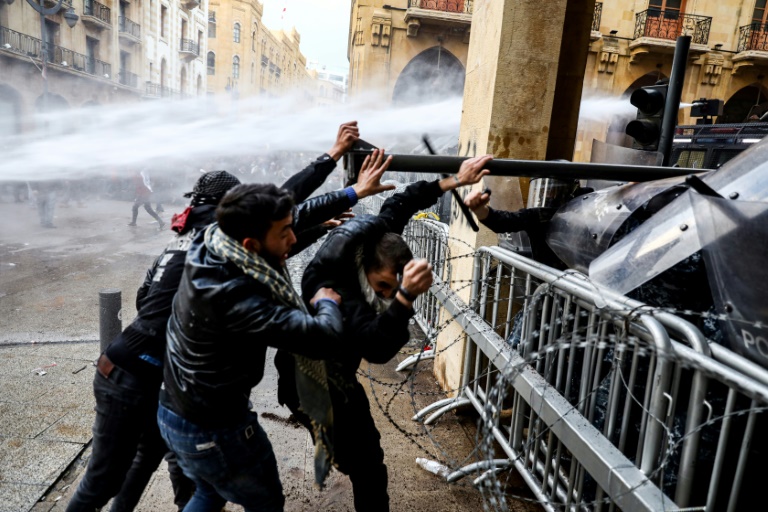Almost 400 people were wounded Saturday during running battles between Lebanese anti-government protesters and security forces in the capital Beirut, rescue services said.
It was the heaviest toll since the protests erupted three months ago, with the Red Cross and Civil Defence saying 377 people at least were rushed to hospitals or treated at the scene.
More demonstrations were expected later Sunday as part of the wave of popular protests that has demanded the wholesale ouster of the Lebanese political class, which the activists condemn as inept and corrupt.
Protesters had called Saturday for a week of “anger” as an economic crisis deepened while efforts remained deadlocked to form a new government to replace the one that stepped down under street pressure late last year.
Saturday’s clashes began after dozens of protesters, some concealing their faces with scarves, threw rocks, plant pots and other objects at anti-riot police guarding the road leading to parliament.
Others tried to breach barbed wire barricades to reach the legislature building or charged police lines using traffic signs as weapons.
The security forces responded with water cannon and tear gas to disperse the crowds.
The Civil Defence said late Saturday 43 people were taken to hospital and that it had treated at the scene 114 others who were “slightly injured or suffered from breathing problems”.
The Red Cross said it had rushed 80 people to city hospitals while 140, including both protesters and members of the security forces, were given first aid at the scene of the clashes.
The state-run National News Agency said around 30 people were detained following the violence but were later released.
Meanwhile security forces said they had opened an investigation after a video shared online showed police beating up people believed to be protesters as they were brought to a Beirut police station.
The protest movement that has rocked Lebanon since October 17 is demanding that a new government be comprised of independent experts and exclude all established political parties.
Read Also: Five Women To Watch At The Australian Open Tennis
The previous government headed by veteran premier Saad Hariri stepped down on October 29 under pressure from the street but has stayed on in a caretaker capacity.
The demonstrators have been denouncing rampant corruption in Lebanon and accuse authorities of being inefficient and motivated by personal and partisan gains.
Political factions agreed on December 19 to appoint former education minister Hassan Diab as the new premier but have since squabbled over proposed ministers.
The World Bank has warned of the worsening impact on the economy, saying the poverty rate in Lebanon could rise from a third to half of the population if the political crisis is not resolved soon.
On Sunday, calls were posted online for new demonstrations near the parliament.
AFP

